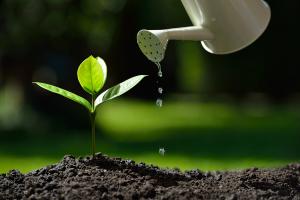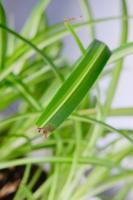Why are Tomato Plant Leaves Wilting?
Tomato plants are a favorite among gardeners because they are easy to grow and provide delicious fruit. However, one of the most common problems that tomato plants face is leaf wilting. There are several reasons why tomato plant leaves may be wilting, and it is important to identify the cause in order to treat the problem effectively.
Inadequate Watering
One of the most common reasons for wilting tomato plant leaves is inadequate watering. Tomato plants require consistent watering throughout the growing season. During hot weather, they may need to be watered every day. If a tomato plant is not receiving enough water, its leaves will start to droop and wilt. To prevent this, make sure to water your tomato plants regularly and deeply, especially during hot weather.
Root Problems
If a tomato plant's leaves are wilting despite adequate watering, the problem might lie with its roots. Root rot, caused by overwatering, can lead to root damage and prevent the plant from taking up water and nutrients. In this case, it is best to remove the affected plant and plant a new one in its place after treating the soil for any fungal growth. Additionally, transplant shock from an incorrectly planted or poorly established plant can also cause leaf wilting. Ensure proper planting practices and give new transplants time to adjust before watering.
Pests and Diseases
Tomato plants are also susceptible to pests and diseases like spider mites, aphids, and blight. These pests and diseases can damage the plant's leaves, causing them to wilt and turn yellow or brown. To prevent this, use insecticidal soap or neem oil to control pests, and space plants appropriately to prevent disease spread. Early blight can be slowed by removing infected leaves, and proper watering techniques will slow its growth.
Nutrient Deficiencies
Finally, wilting tomato plant leaves may also be caused by nutrient deficiencies. Tomato plants require adequate levels of nitrogen, phosphorus, and potassium in order to grow healthy leaves and delicious fruit. A lack of any of these nutrients can cause the leaves to wilt and turn yellow. To prevent this, fertilize your tomato plants regularly with a balanced fertilizer that has the right proportion of these nutrients. It is also important to ensure that the soil pH is within the correct range, as nutrient availability can be affected by pH levels.
Conclusion
There are several reasons why tomato plant leaves may be wilting, including inadequate watering, root problems, pests and diseases, and nutrient deficiencies. Identifying the cause of the problem is important in treating it properly. With the right approach, your tomato plants will grow healthy and robust, providing you with delicious tomatoes throughout the growing season.

 how many times do yo...
how many times do yo... how many planted tre...
how many planted tre... how many pine trees ...
how many pine trees ... how many pecan trees...
how many pecan trees... how many plants comp...
how many plants comp... how many plants can ...
how many plants can ... how many plants and ...
how many plants and ... how many pepper plan...
how many pepper plan...































